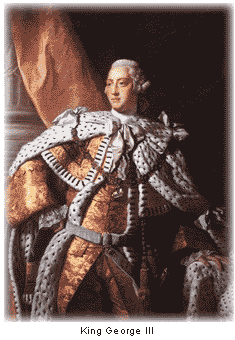In July 1775, the Second Continental Congress made a final effort to seek reconciliation with Britain and end the fighting. The chief advocate of this effort was John Dickinson, a conservative delegate from Pennsylvania, who authored the Olive Branch Petition.
 This appeal was directed to George III personally. It issued a sharp protest against repressive British policies and asked the king to halt the war, repeal the Coercive Acts and bring about reconciliation. While critical of Parliament and the king's ministers, the petition lauded the relationship between the American colonies and the mother country as “the wonder and envy of other nations.” Loyalty to the king was not challenged:
This appeal was directed to George III personally. It issued a sharp protest against repressive British policies and asked the king to halt the war, repeal the Coercive Acts and bring about reconciliation. While critical of Parliament and the king's ministers, the petition lauded the relationship between the American colonies and the mother country as “the wonder and envy of other nations.” Loyalty to the king was not challenged:
Attached to your Majesty’s person, family, and Government, with all devotion that principle and affection can inspire; connected with Great Britain by the strongest ties that can unite societies, and deploring every event that tends in any degree to weaken them, we solemnly assure your Majesty, that we not only most ardently desire the former harmony between her and these Colonies may be restored, but that a concord may be established between them upon so firm a basis as to perpetuate its blessings, uninterrupted by any future dissensions, to succeeding generations in both countries, and to transmit your Majesty’s name to posterity, adorned with that signal and lasting glory that has attended the memory of those illustrious personages, whose virtues and abilities have extricated states from dangerous convulsions, and by securing the happiness to others, have erected the most noble and durable monuments to their own fame.Congress approved this statement on July 5, due more to its respect for Dickinson than as an endorsement of its content. Signatures of 48 delegates were affixed on July 8 and the document was then shipped off to London. Its reception there was frigid. The king refused to receive the petition, perhaps being especially sensitive because word had recently been received that the Americans had launched an invasion of Canada — an act of unbelievable aggression in British eyes. On August 23, George III proclaimed the American colonies to be in rebellion and urged that all efforts should be made “to suppress such rebellion, and bring the traitors to justice.”